Contract farming has been a hot topic in India for the past few years. The central government is promoting it as a way to increase incomes for small and marginal farmers. The private sector is also interested in it as a way to secure raw material supplies at relatively lower costs. This post content will take a closer look at dairy contract farming in India. We will explore the opportunities and challenges associated with the type of farming and the potential impact of contract farming could have on the Indian dairy industry.
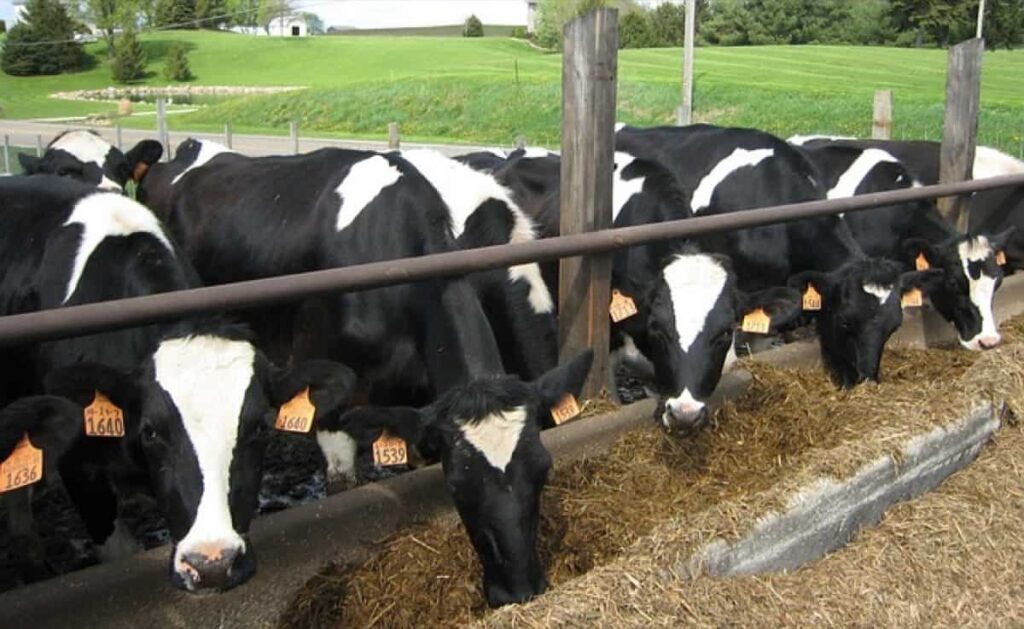
The dairy industry in India
The dairy industry in India is one of the largest in the world. It is a vital part of the country’s economy and employs millions of people. The industry has been growing rapidly and is expected to continue. The mainstay of the Indian dairy industry is small & marginal farmers who own less than two cows each. However, there is an increasing trend towards contract farming, whereby large companies contract with small farmers to supply milk.
This has several advantages for both parties. For the farmer, it provides a guaranteed market for their milk and often comes with additional services such as training and animal health care. For the company, it ensures a reliable milk supply and can help reduce costs. Contract farming is still relatively new in India, but it is growing rapidly and is expected to play a vital role in the future development of the dairy industry.
In case you missed it: Contract Sheep Farming in India: Companies, Agreement, Profits, How it Works and the Pros and Cons
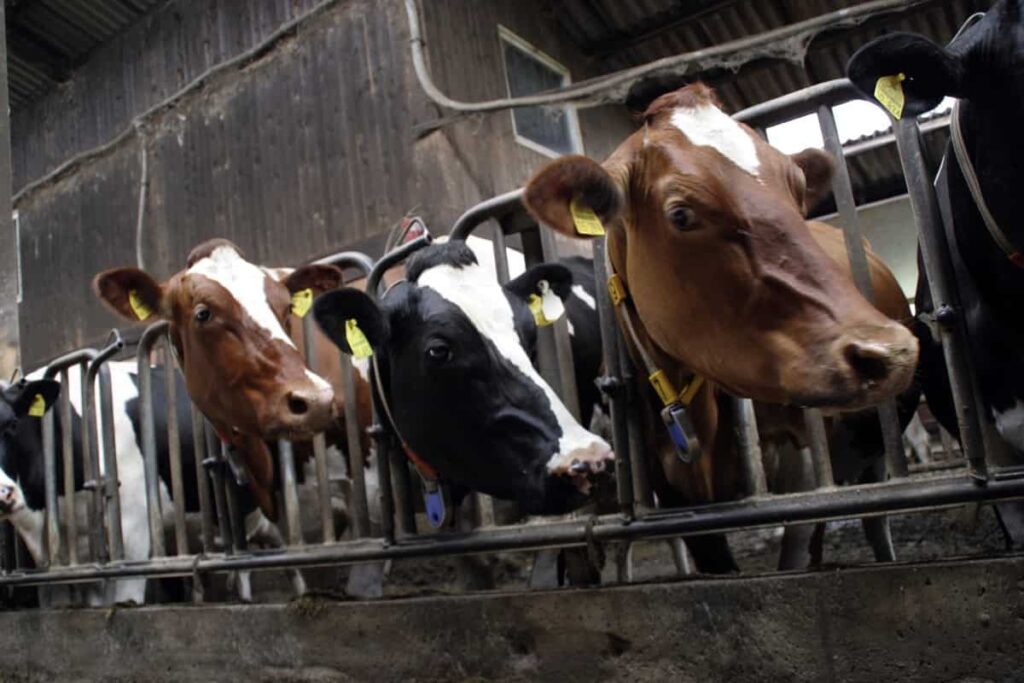
Contract farming in India
Contract farming has become a popular option for dairy farmers in India. Under this arrangement, a dairy farmer agrees to sell his milk to a processing company at a fixed price. The company provides the farmer with feed, veterinary services, and technical support. The farmer is also guaranteed a minimum price for his milk. This arrangement has several benefits for dairy farmers:
- It gives them access to quality feed and veterinary services.
- It ensures they receive a minimum price for their milk, even if market prices fall.
- It gives them the security of knowing they have a buyer for their milk.
Of course, contract farming is not without its risks. If market prices rise above the price set in the contract, the farmer misses out on potential profits. And if market prices fall below the contract price, the farmer may be forced to sell his milk at a loss. Despite these risks, contract farming is increasingly seen as a viable option for Indian dairy farmers looking to improve their incomes and secure their livelihoods.
What is dairy contract farming?
Dairy contract farming is a system in which farmers produce milk and other dairy products under contract to a processor or marketer. The terms of the contract may specify the type of production system to be used, the quality standards to be met, the price to be paid, and other conditions. Dairy contract farming can provide farmers with a source of income that is more stable than milk prices in the open market.
It can also help processors and marketers to ensure a supply of raw milk and dairy products that meet their specifications. However, contracts can also create risks for farmers, who may be required to make significant investments to meet the contract’s terms. Contracts can also be complex, and farmers must understand the terms & conditions before signing a contract with dairy companies. Farmers should seek advice from experienced agricultural lawyers or other advisers before signing a contract.
In case you missed it: Contract Goat Farming in India: How to Earn an Extra Income from this Long-Term Investment
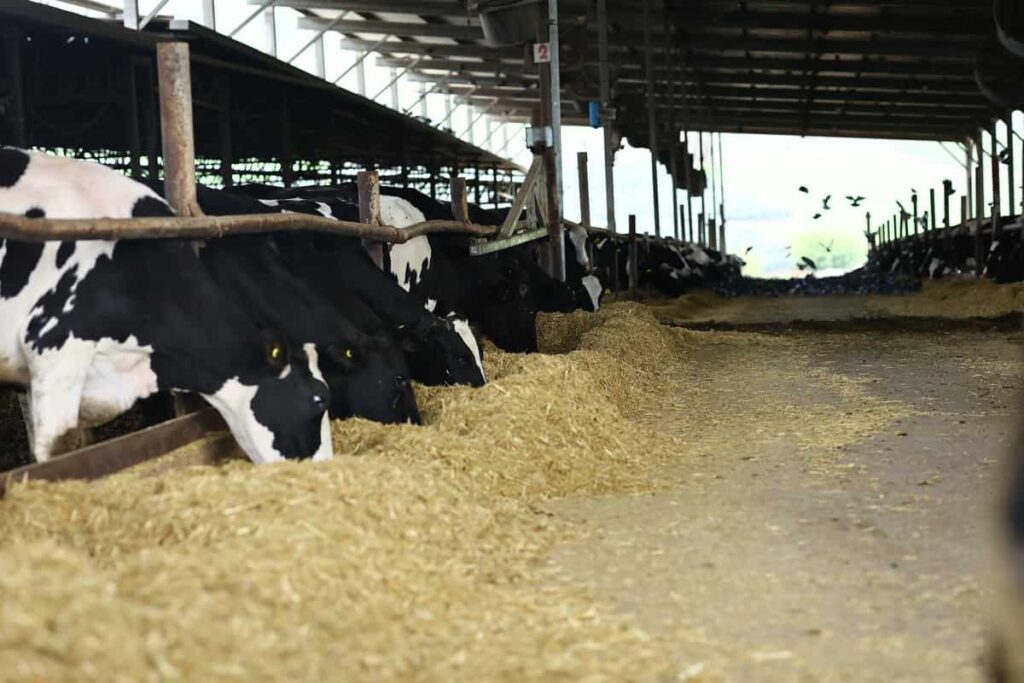
Importance of dairy farming in India
Dairy farming is an integral part of the agricultural sector in India. Dairy industry is a source of livelihood for many small and marginal farmers and contributes to the country’s economy. The dairy industry in India is growing at a rapid pace and is expected to continue growing in the near future. The dairy industry plays a vital role and integral part of the Indian economy.
Dairy is a major source of livelihood for small & marginal farmers and contributes significantly to the country’s GDP. The dairy industry is also a major employer in the rural areas of India. Dairy farming provides an essential source of nutrition for the people of India. Milk and milk products are rich in protein, vitamins, and minerals. They are an essential part of the diet of many people in India, especially children and women. Dairy farming also helps to conserve natural resources. Dairy cows require less land and water than other livestock animals.
They also produce less greenhouse gas emissions than other animals raised for meat production. Dairy farming thus has a positive impact on the environment. The future of dairy farming in India looks bright. The demand for milk and milk related products will continue to grow in the near future as well. The government supports the industry and is taking steps to promote its growth. With proper support from the government and other stakeholders, the dairy industry in India has immense potential to grow and prosper.
Requirements for dairy contract farming in India
In India, dairy contract farming has been successfully implemented in several states, including Gujarat, Madhya Pradesh, Maharashtra, Karnataka, Tamil Nadu, and Uttar Pradesh. The main objective of this type of contract farming is to provide small and marginal farmers with an opportunity to increase their milk production and incomes. Under the scheme, a farmer agrees with a milk processing company, wherein the company agrees to purchase all the milk produced by the farmer at a pre-determined price.
The company also provides the farmer with technical and financial assistance for procuring quality cattle feed, maintaining hygienic milking practices, and constructing requisite infrastructure on the farm. In return, the farmer agrees to sell his entire milk production to the company and follow all its guidelines regarding animal husbandry and milk production. The minimum requirements for a farmer to participate in dairy contract farming are:
- He must have at least two cows or buffaloes that are in milk yield
- He should have access to quality fodder for his animals
- He should be willing to construct the necessary infrastructure on his farm as per the company’s guidelines
- He should be able to commit to selling all his milk production to the company.
In case you missed it: Common Dairy Cattle Diseases, Symptoms, and Treatment: Check How this Guide Helps Dairy Farmers
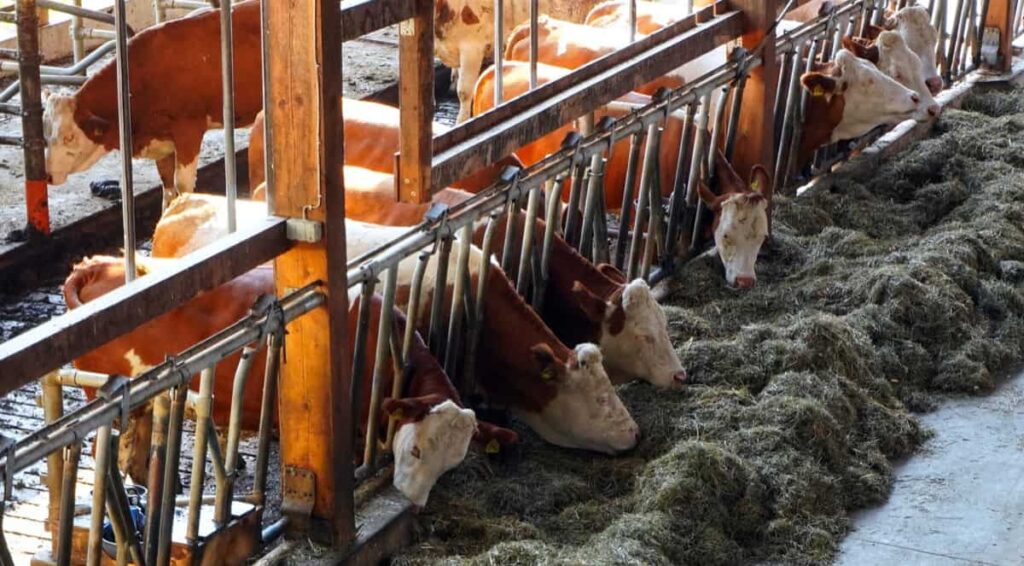
Advantages of dairy contract farming
- It provides a stable source of income for farmers.
- It helps to ensure a consistent supply of milk for the dairy industry.
- It allows farmers to utilize their resources better and improve their production efficiency.
- It provides an opportunity for small-scale farmers to enter the dairy industry.
Disadvantages of dairy contract farming
Contract dairy farming has several disadvantages that need to be considered before signing any agreement. First, the terms of the contract may be unfair to the farmer, favoring the company instead. The farmer may be asked to invest in expensive equipment or make other changes to their farm that they cannot afford. Additionally, the contract may require the farmer to sell all of their milk production to the company, even if market prices are higher elsewhere.
This could limit the farmer’s income and cause financial hardship. Another disadvantage is that contract dairy farming can depend on the contracting company. If the company cancels the contract or raises prices, the farmer may be left in a difficult situation. This can lead to a loss of independence for farmers and an increased risk of exploitation.
Finally, contract dairy farming can have negative impacts on animal welfare. In some cases, farmers may be required to use harsh methods of milking or breeding that can cause distress for cows. Additionally, cows may be kept in crowded and unsanitary conditions if farms are not well-managed. This can lead to disease and suffering for animals.
Dairy contract farming companies in India
Many dairy contract farming companies in India are working hard to improve milk quality and the quality of dairy products in the country. These companies have been instrumental in setting up modern dairy farms and providing technical and financial support to small and marginal farmers. Some of India’s leading dairy contract farming companies is Amul, a cooperative society based in Anand, Gujarat. It is the largest producer of milk and dairy products in India.
Amul has a vast network of village-level societies that collect milk from farmers and send it to Amul’s processing plants. Amul supports farmers through its Animal Husbandry Extension Services (AHES) program. This program provides extension services, training, and financial support to farmers for building capacity and improving productivity.
Mother Dairy Mother Dairy is a National Dairy Development Board (NDDB) subsidiary. It was set up in 1974 to modernize the Indian dairy industry. Mother Dairy has a vast network of Milk Producers’ Organizations (MPOs) that work with small and marginal farmers. It provides extension services, training, financial support, and inputs to these farmer groups.
Mother Dairy also has an extensive network of retail outlets across India selling its products. Krishna Contract Farming Company (KCFCL) KCFCL is a contract farming company based in Bangalore, Karnataka. It works with small and marginal farmers in Karnataka, Tamil Nadu.
In case you missed it: Understanding Backyard Poultry/Chicken Farming at Home: Check How this Guide Helps Beginners
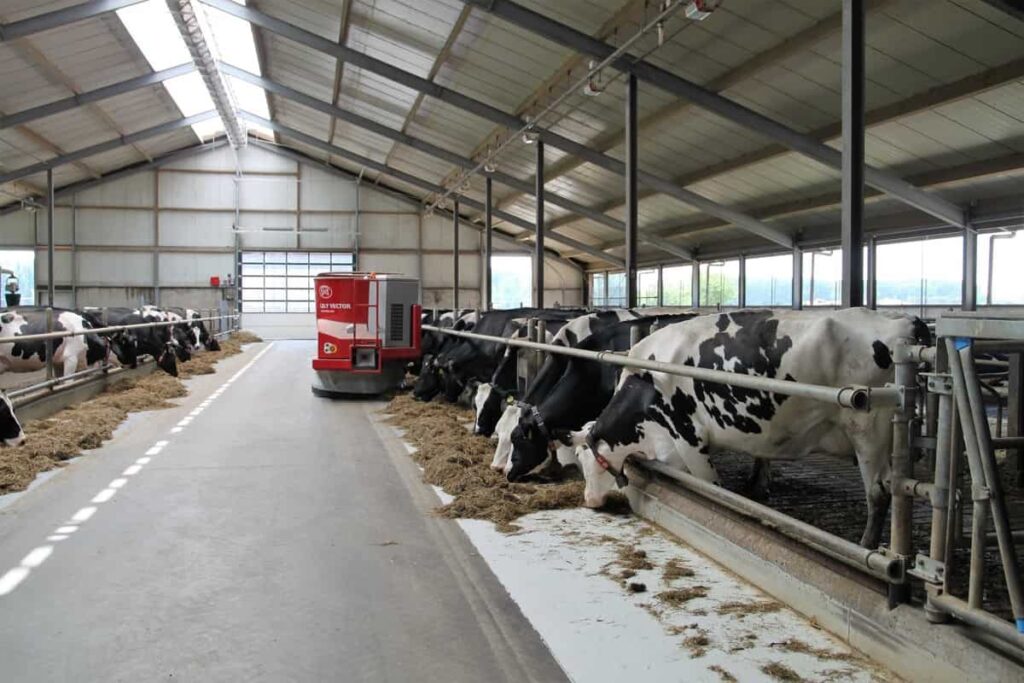
Dairy contract farming agreement in India
Under a typical dairy contract farming agreement in India, the farmer is responsible for providing the land, infrastructure, and cow(s), while the company provides the feed and veterinary care. The farmer agrees to sell the milk to the company at a pre-agreed price. The contract may also stipulate that the company will purchase any surplus milk produced by the farmer.
Dairy contract farming is a popular model in India, as it provides small-scale farmers with access to quality feed and veterinary care, which they might not be able to afford otherwise. It also guarantees a market for their milk, ensuring that they can make a reliable income from their dairy cows.
If you’re considering entering into a dairy contract farming agreement in India, it’s important to research and choose a reputable company to work with. Make sure you understand all the terms of the contract before signing anything and get everything in writing to avoid any issues later on.
Profits in dairy contract farming in India
Dairy contract farming has been a profitable venture for farmers in India. The main reason is the increased demand for milk and milk-related products in the country. This made to an increase in the price of milk, which has benefited the farmers involved in dairy contract farming. Another reason for the profitability of dairy contract farming in India is that there is a lot of government support for this sector.
The government provides subsidies and other financial incentives to encourage more farmers to get involved in this type of farming. This has helped to increase the number of farmers engaged in dairy contract farming, which has further boosted the profits they are able to make. Overall, dairy contract farming is a very lucrative option for farmers in India. There is a high demand for milk and milk related products in the country, and the government supports this sector. This has resulted in increased profits for the farmers involved in this farming.
In case you missed it: Tips to Start a Goat Farming Business: Check How this Guide Helps Beginners
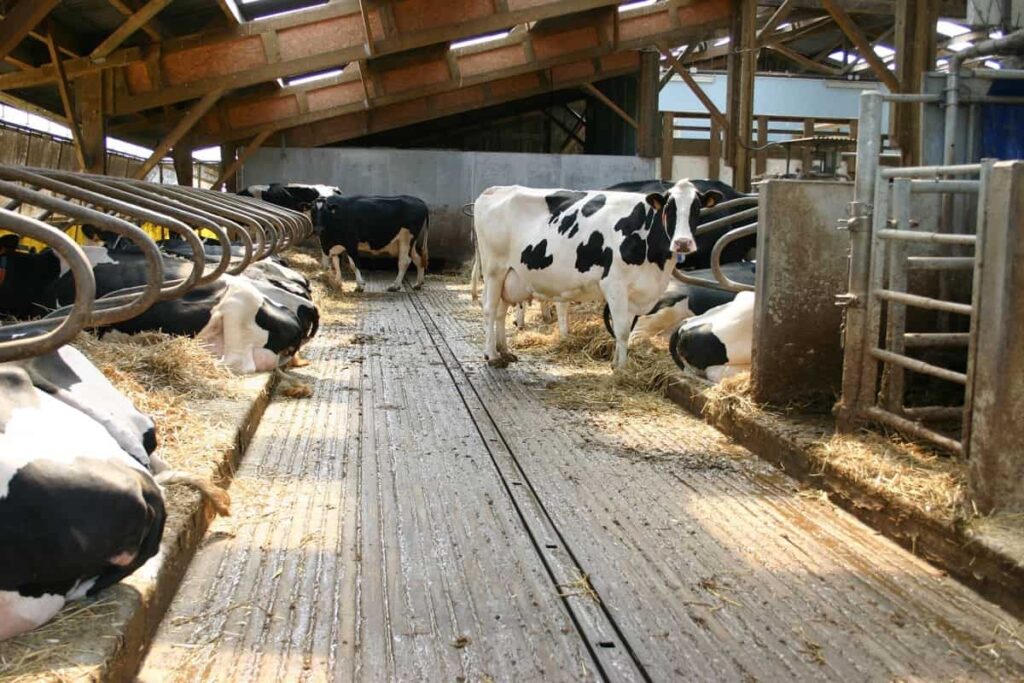
Conclusion
Dairy contract farming in India has become an increasingly popular option for small and marginal farmers looking to improve their economic situation. While some risks are associated with this type of farming, such as fluctuations in milk prices, the potential rewards can be significant.
With the proper contracts in place, dairy contract farming can provide a much-needed source of income for small farmers while helping to ensure a steady milk supply for the country’s growing population. If you live in the following states and plan for dairy contract farming in India, this may help you to understand the basics of contract dairy farming.
| Andhra Pradesh | Karnataka |
| Arunachal Pradesh | Kerala |
| Assam | Madhya Pradesh |
| Bihar | Maharashtra |
| Chhattisgarh | Manipur |
| Goa | Meghalaya |
| Gujarat | Mizoram |
| Central India | South India |
| Haryana | Sikkim |
| Himachal Pradesh | Tamil Nadu |
| Jharkhand | Telangana |
| Nagaland | Tripura |
| Odisha | Uttar Pradesh |
| Punjab | Uttarakhand |
| Rajasthan | West Bengal |
| North India | West India |
- Management Pests and Diseases in Your Cotton Field
- Sheep Farming Business Plan for Beginners
- Aquaponic Farming at Home: A Step-By-Step Guide
- Profitable Village Farming Business Ideas in 2024
- High-Yield Aquaculture: Fast-Growing Fish for Farming
- Effective Fish Pond Construction Techniques for Beginners
- Irrigation and Water Management in Pineapple Farming
- Blossom to Harvest: Mastering Flowering and Pollination in Papaya Farming
- Pig Fattening Essentials: From Selection to Sale for Beginners
- Raising Wagyu Cattle: A Complete Guide for Premium Beef Production
- Soil Types and Their Water Holding Capacity
- Optimizing Irrigation Schedules for Coconut Groves for Enhanced Yield
- Espresso Your Garden: Coffee Grounds for Healthier Acid-Loving Plants
- The Best Soil Mix for Snake Plants: How to Mix Your Own Snake Plant Soil
- Green Thumb Success: Expert Tips for Cultivating Greenhouse Beans All Year Round
- Bloom All Year Round: The Ultimate Guide to Indoor Hyacinth Care
- Eco-Friendly Gardening: How to Make Liquid Fertilizer from Kitchen Waste
- Ultimate Guide to Grow Anise in Pots: Explore Seed Propagation to Harvesting
- Guide to Raising Chester White Pigs: Discover Breed Facts to Growth Management
- Mastering the Elegance: The Ultimate Guide to Weeping Cherry Tree Care, Planting, and Maintenance
- Ultimate Guide to Planting Garlic in Grow Bags: Growing Strategies for Beginners
- How to Fix Spider Plant Leaf-Related Problems: Natural and Organic Remedies
- 10 Reasons Why Your Tulsi Plant is Shedding Leaves: Home Remedies and Solutions
- Optimizing Growth and Yield: The Advantages of Palm Bunch Ash Fertilizer
- Utilizing Neem Oil Extract as a Natural Pesticide for Hydrangea
- From Soil to Harvest: Various Ways in Which Farmers Can Use AI Tools
- Steps to Encourage and Induce Citrus Flowers: A Comprehensive Guide
- How to Fix Snake Plant Leaf-Related Issues: Natural and Organic Remedies
- Transform Your Garden into a Fragrant Oasis with Raat Ki Rani (Night Blooming Jasmine)
- Discover the Ideal Chicken Breeds for Philippine Farms
- How to Create a Poultry Egg Farm Business Plan for Profits
- Grow Lemon Cucumbers Like a Pro: Insider Techniques for Bountiful Yields
- Ultimate Guide to Caring for Your Pink Princess Philodendron: Tips for Thriving Variegation
- Areca Nut Profit Per Acre: Calculating Yield and Cost of Cultivation
- How Kaveri Chicken is Becoming a More Profitable Breed in Indian Backyards
- Transform Your Barn: 9 Steps to Convert a Horse Stall into a Chicken Coop

I completed Dairy Tech B. Tech I want to work with Dairy and dairy farm industry please reply
Want to start a dairy farm….how your company can help me?